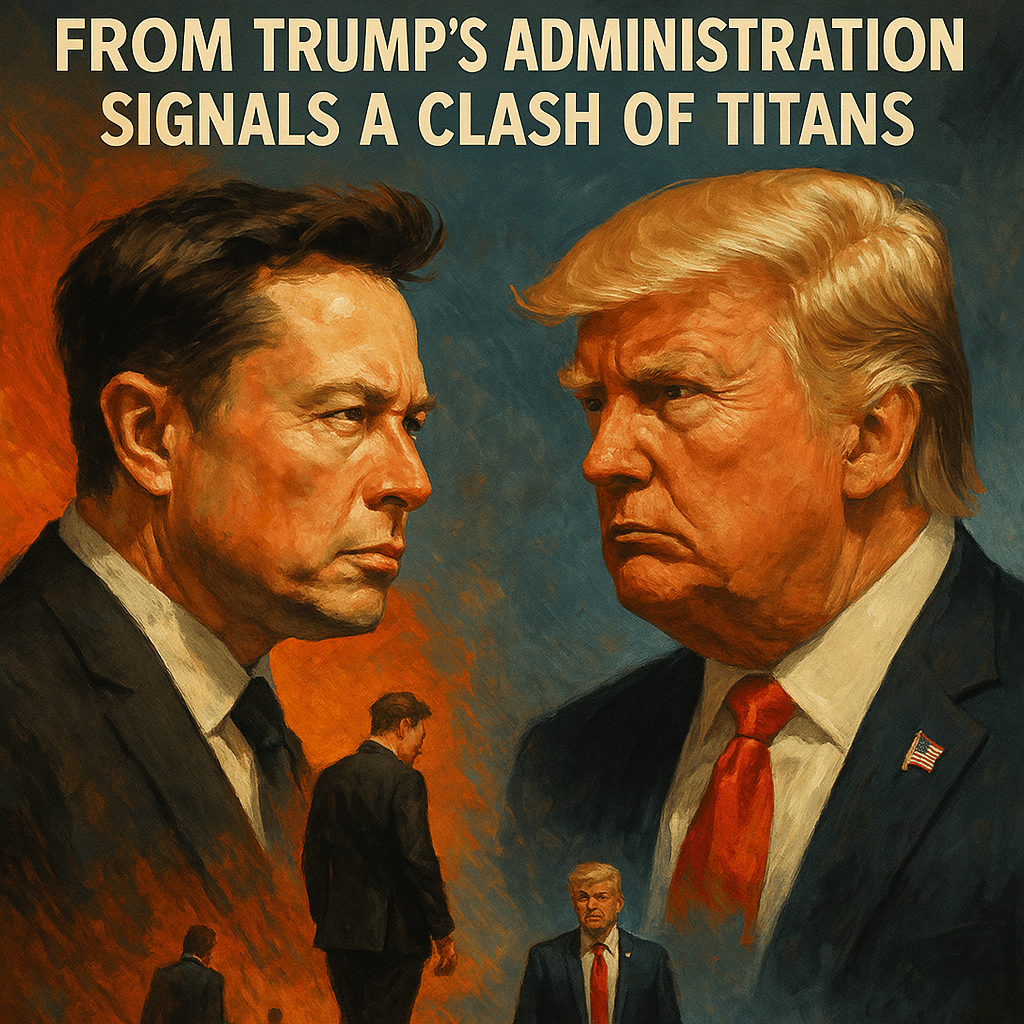Published at
Elon Musk's Potential Exit from Trump's Administration Signals a Clash of Titans
- fefamily127
- •
- 4 MIN TO READ

In a political landscape often dominated by personalities, two of the most iconic figures—Donald Trump and Elon Musk—may be nearing a consequential split. Once seen as unlikely allies, the President and the tech mogul now appear to be on divergent paths, with Musk’s growing disapproval of Trump's protectionist policies becoming increasingly vocal.
A Rift in the Making
Over the past week, Elon Musk has made his stance on tariffs unmistakably clear. Sharing a video of economist Milton Friedman extolling the virtues of free markets, Musk has signaled his opposition to Trump's economic nationalism. The timing was not subtle—coming just after Trump’s tariff announcements—and suggests a deliberate move to distance himself from the administration’s direction.
“It’s open criticism of the president,” noted ITV’s political analysts. Musk’s call for a “zero tariff situation” between the U.S. and Europe isn’t just policy advocacy—it’s a pointed rebuttal to Trump’s economic strategy.
Business First
At the heart of Musk’s discontent lies business pragmatism. Tesla and SpaceX, his two crown jewels, are global enterprises. Tesla, for example, maintains factories in both Shanghai and Berlin, relying heavily on a stable and open global supply chain for materials like lithium, cobalt, and nickel.
Tariffs disrupt this ecosystem. CNBC has reported that Musk’s net worth dropped by $30 billion following the tariff rollout. Even for the world’s richest man, that kind of financial blow doesn’t go unnoticed. As one commentator put it, “$30 billion—you do feel that pinch.”
Ideological Divide
While Trump doubles down on protectionist policies, Musk continues to champion free trade. It's not just about the money—it’s also a fundamental ideological rift. “Trump is much more protectionist,” said analysts, “while Musk may be one of the only voices still defending the long-term benefits of free markets.”
Musk’s backing of free trade may surprise those who saw him as a natural ally of Trump, especially given his support for the administration's early deregulation efforts. However, his discomfort with government-imposed trade barriers has begun to redefine that relationship.
Musk's Role in the Trump Era
Appointed as a special government employee to lead the Department of Government Efficiency (DOGE), Musk's position was always temporary. He himself hinted at an eventual departure, saying he would exit when the time came. Now, that moment may be imminent.
But don’t expect a clean break.
Even outside government, Musk’s influence will likely remain. As a major financial contributor to Trump’s political apparatus, he enjoys privileged access to the Oval Office and the President's inner circle. “There’s a degree of loyalty there,” said ITV analysts. “That will always guarantee Musk a seat at the table—even if it's behind the scenes.”
The Bigger Picture
For Musk, government service is only a footnote in a much grander narrative. His focus has never been solely on America—it spans Earth and beyond. With SpaceX aiming to colonize Mars, Musk’s ambitions are not just global, they are interplanetary.
“He’s got this dream that he’s had since childhood,” said one observer. “He genuinely believes his legacy is to get humans to Mars. If that’s your mission, why would you get caught up in day-to-day White House politics?”
What Comes Next?
Musk’s potential exit from the Trump administration marks more than a political shuffle—it signals the waning of an alliance born out of convenience rather than compatibility. As both men continue to shape their legacies—one in politics, the other in technology and space exploration—their paths may continue to cross, but likely from a growing distance.
This moment may not be the end of their relationship, but it certainly is a redefinition of roles. Musk’s future influence on American policy may come not from a government desk, but from boardrooms, satellites, and launchpads.
Conclusion:
Elon Musk's chapter in the Trump administration appears to be closing. But his broader story—as a visionary, entrepreneur, and space-faring pioneer—is still being written. And for Trump, the loss of such a high-profile ally may mark a shift in both tone and trajectory. One thing is clear: when egos and ambitions of this scale collide, the aftershocks are felt far and wide.